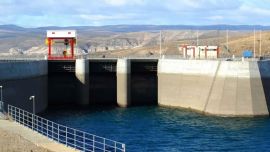For painfully understandable reasons, Mauricio Macri and his supporters want the election campaign that has long been under way to be all about corruption, getting tough on crime, foreign policy and, perhaps, education. They assume that would give them an overwhelming advantage over their Peronist foes whose record on such issues is, shall we say, slightly tarnished.
For their part, the Peronists, who have yet to come up with a presidential candidate, are determined to make the dire state of the economy the only thing worth talking about. This means they have to blame Macri and his cohorts for its all-tooevident shortcomings: high inflation, low consumption, big debts, little in the way of productive investment and, needless to say, the glowering presence of the much despised International Monetary Fund “technicians” who, according to them, are so simple-minded that they are unable to grasp the fact that Argentina is not like other countries and goes by different rules.
In recent months we have heard a great deal about Macri’s repeated blunders and his government’s perverse inability to get anything right. Those attacking him appear to take it for granted that – were he, Nicolás Dujovne and the rest of them less idiotic – the economy would already be growing at a sprightly pace, with hordes of people thronging the shopping malls, supermarkets and neighbouring stores, buying whatever took their fancy, with inflation no more than a bad memory.
Do they really believe this? Perhaps they are some out there who are genuinely convinced that Macri has impoverished a country that otherwise would be drowning in money, but that seems improbable. Even people like Pino Solanas who are keen on conspiracy theories think it would make no sense for a president deliberately to wreck the country he or she is ruling, a task best left to those in opposition.
Condemning Macri and company for their incompetence or worse is easy and, for some, it can be most enjoyable, but going on to tell us what their government should have done is anything but. Take inflation, a disease Argentina has suffered from for longer periods than any other country on earth. It can be attributed to the ruling class’s fervent belief that despite appearances she is far richer than the wretched statistics would suggest and so can afford luxuries denied to most others. For over a century, the notion that Argentina is inordinately wealthy has helped prop up national pride, so abandoning it would be humiliating, but as many a free-spender who, after squandering the family fortune was forced to live out his days in poverty found out, imaginary riches are not the same as real ones. Like the bullfrog in Aesop’s tale who kept puffing himself up to show he was just as big as an ox, Argentine governments of all stripes have made a habit of spending more than they had or could plausibly get.
That is what Macri’s government was doing until almost a year ago when, to its evident astonishment, the moneymen said enough is enough and the peso suddenly shrank to about half its previous size. That certainly deserves criticism, but had it behaved differently and put the squeeze on from day one as some Peronists now insinuate it should have done, it would in all probability have been hounded out of office by irate mobs. For many years, even alluding to the need for a spot of costcutting by the State has been taboo in the marvellously flexible world of Argentine politics. This means that governments feel they have little choice but to take “popular feeling” into account and carry on as before in the hope that somehow or other nothing unpleasant will happen while they are still around. If they try to put the country’s finances in order they will be accused of criminal behaviour, even “genocide”; if they decide to leave things as they are, they will be berated for their crass irresponsibility.
As last year ground on, Macri and his team members came to the conclusion that it would be better to pay more attention to the country that actually exists than to the one floating around in their fellow-politicians’ imagination. According to the conventional wisdom, Macri chose to commit suicide because people would never vote for a president who failed to give them what they thought they deserved, but, strange as it may seem, enough men and women still prefer him to any of his putative rivals to give him a chance of getting re-elected.
Presumably some would change their minds if an
opposition leader told them exactly what he or she
would do to turn Argentina into a money-spewing
powerhouse, but none of them seems willing to take
such a dangerous risk. Instead, they go on in the timehonoured fashion about the need for the different
corparatist sectors to reach a great national agreement so that everyone can start pulling in the
same direction. Gritty right-wingers suggest it
would help if the enormous number of people
who live off hand-outs made an effort to learn
a useful trade. Those with long memories remember having heard much the same ever since it became
plain, halfway through the 20th century, that Argentina
was getting left behind economically by countries, like
Italy, her citizens had once regarded as pitifully poor. The
schemes mooted may have pleased those responsible for
them, but as the ones thought worth taking into account
tended to be based on the belief that there was nothing
much wrong with Argentina’s political order, few of them
did much good.related news





















Comments